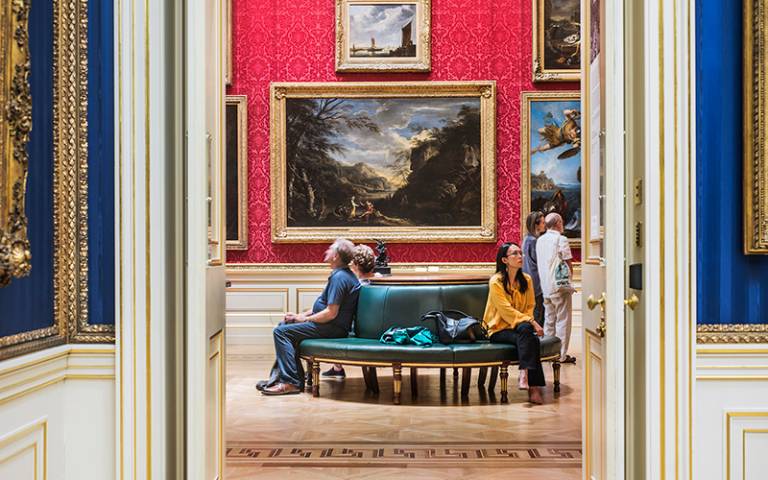Developing quality inclusive practice with the Wallace Collection
How a London museum called upon IOE expertise to better understand Special Educational Needs and Disabilities to make their programmes more inclusive for all.

27 April 2023
The Wallace Collection, led by their learning team, set out to make their offering more inclusive. They obtained funding from the John Lyons Charity for a three-year project to develop a whole school programme for pupils with Special Educational Needs and/or Disabilities (SEND) with the aim of making their collection, workshops and school outreach programmes more inclusive for all and to build a well-put together, perennial offer for SEND schools.
To start this journey, the learning team first wanted to gain a better understanding of SEND needs and of what quality inclusive practice looks like. To do so, they signed up for the UCL Centre for Inclusive Education’s (CIE) suite of online short courses on Developing Quality Inclusive Practice for children and young people with SEND: SEND DQIP.
Challenge
In particular, the learning team at the Wallace Collection wanted to make their school programme more inclusive. As part of the programme, the team conducts outreach activities with schools and welcomes schools coming to visit the collection or participating in workshops.
The learning team works closely with schools and pupils, including many who visit on a one-off basis and many who visit frequently as part of longer, year-round engagement. It was important for them to raise awareness and build confidence within the learning team on how best to support children and young people with SEND, so that they would feel empowered to develop an offer that meets the needs of all their visitors.
Solution
The learning team signed up to take part in courses on supporting children and young people with SEND, including courses on Principles Underpinning Inclusive Practice, Speech, Language and Communication Needs, Understanding Autism, Visual Impairment, Developmental Coordination Disorder, Specific Learning Difficulties (dyslexia), Multi-Sensory Impairment (deafblindness) and Social Emotional Mental Health. The team first accessed the online course materials, which include recordings and resources to help participants develop inclusive practice within their setting. After accessing the online course materials, the learning team participated in a series of follow-up live sessions, in which they met with CIE members to talk about how they could apply the knowledge and strategies learned in the courses to their work at the Wallace Collection.
The training encompassed a wide range of needs and allowed the team to start thinking about how they could tailor their activities to ensure these were inclusive and accessible. Amy Chang and Sara Rayment, part of the learning team, shared that the courses provided an important first step on the stairs to developing an inclusive offer, by providing team members with the confidence and knowledge to take the project forward.
Impact and results
The learning team at the Wallace Collection has continued to build upon the work started with the SEND DQIP courses to develop their inclusive practice. They have put measures in place to cater to students with SEND in mainstream schools who come to visit the collection, including providing schools with a simple form to indicate when a pupil might need access to support and providing resources like visual timetables and social stories that pupils can use when they visit the museum. They have created a programme specifically tailored for SEND schools, including onsite museum visits and outreach. The learning team is also building upon their training to implement the next stages of their three-year project, including upskilling staff through delivering training to their gallery team and working with freelance educators to create an inclusive gallery syllabus.
Amy and Sara highlighted the benefits of the courses in allowing their team to hear from professionals and experts in SEND and from people with SEND themselves. Equally essential was the opportunity to have conversations about inclusive practice and discuss with colleagues and experts how they could apply their learning from the courses to their own work. They shared that the course helped the team to feel empowered to make their offering inclusive, that it emphasised the benefits of taking the time to understand each child’s and young person’s individual needs and offer tailored support, and that working to make their collection inclusive benefits all their visitors.
Image
© The Trustees of the Wallace
 Close
Close

